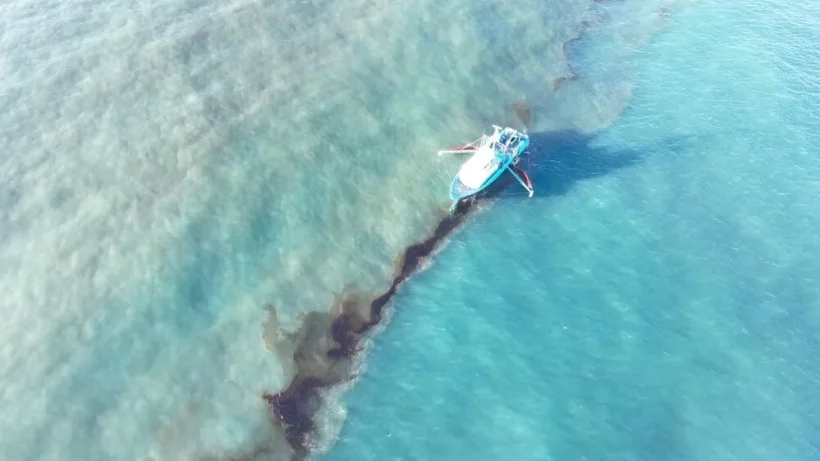The U.S. Coast Guard is searching off the Louisiana coast for the source of a leak in a 67-mile-long pipeline that has spilled over 1 million gallons of crude oil into the Gulf of Mexico.
When the leak started has not been specified, but it was first reported by National Oceanic and Atmospheric Administration (NOAA) at 9:10 a.m. on Nov. 16, according to The Hill. The pipeline is owned by Main Pass Oil Gathering Company, which closed the pipeline earlier that same day around 6:30 a.m., as reported by The Guardian.
Main Pass Oil Gathering Co. is owned by Third Coast Infrastructure, a company based in Houston, that has joined a Unified Command with the Coast Guard and the Louisiana Oil Spill Coordinator’s Office to respond to the crude oil spill. However, officials have not yet determined a responsible party for the spill.
“Overflight teams observed visible oil Friday moving southwest away from the Louisiana shore. Three skimming vessels are working to recover oil on the surface,” the Coast Guard shared in a statement. “On Saturday and Sunday, overflights observed intermittent surface sheens. Additional surface observations are ongoing with two Coast Guard cutters on scene and additional overflights.”
According to officials, the spill, which happened about 20 miles out from the mouth of the Mississippi River, has not yet affected the shoreline, Nola.com reported. But some pelicans have been found with oil on their bodies, and officials are concerned about how the spill could impact vulnerable wildlife in the area.
“There are endangered and threatened species in Louisiana waters. Most of the coastal Louisiana is wetlands and marshes, and that’s typically considered really sensitive to oil,” Doug Helton, emergency operations coordinator for NOAA, told WWL-TV. NOAA is assisting with the spill response.
Matt Rota, the senior policy director for Healthy Gulf, said one of the biggest concerns is how the oil spill may impact endangered sea turtles.
This incident is larger than the average oil spill, The Hill reported. In the past 50 years, about 44 oil spills have each leaked over 420,000 gallons of oil in the U.S., and many other smaller oil spills of one oil barrel or less occur each year. At an estimated 1.1 million gallons, this oil spill is much larger, although an oil spill of any size still threatens the environment.
The cause of the leak remains under investigation, but the incident comes amid increasing scrutiny of fossil fuel development in the Gulf of Mexico. Scientists have been particularly concerned about the critically endangered Rice’s whale, a recently discovered type of baleen whale that lives in the Gulf of Mexico.
“Continued oil and gas development in the Gulf represents a clear, existential threat to the whale’s survival and recovery,” scientists shared in a 2022 letter to the Biden administration, as reported by CBS News. “The government’s Natural Resource Damage Assessment on the Deepwater Horizon oil spill estimates that nearly 20% of Gulf of Mexico whales were killed, with additional animals suffering reproductive failure and disease.”
Paige Bennett is a writer based in Los Angeles who is passionate about sustainability. She earned her Bachelor’s degree in Journalism from Ohio University and holds a certificate in Women’s, Gender and Sexuality Studies. She also specialized in sustainable agriculture while pursuing her undergraduate degree.






